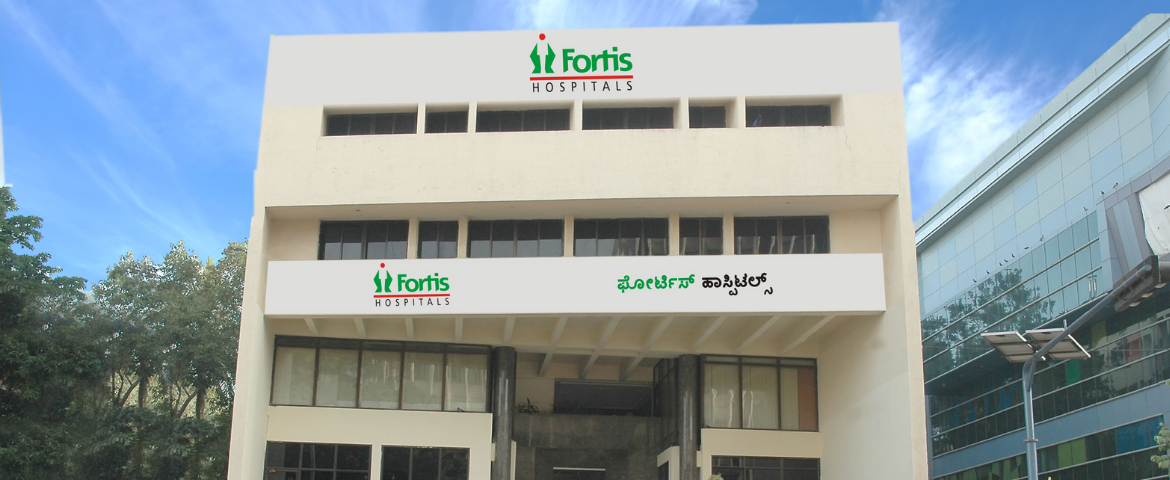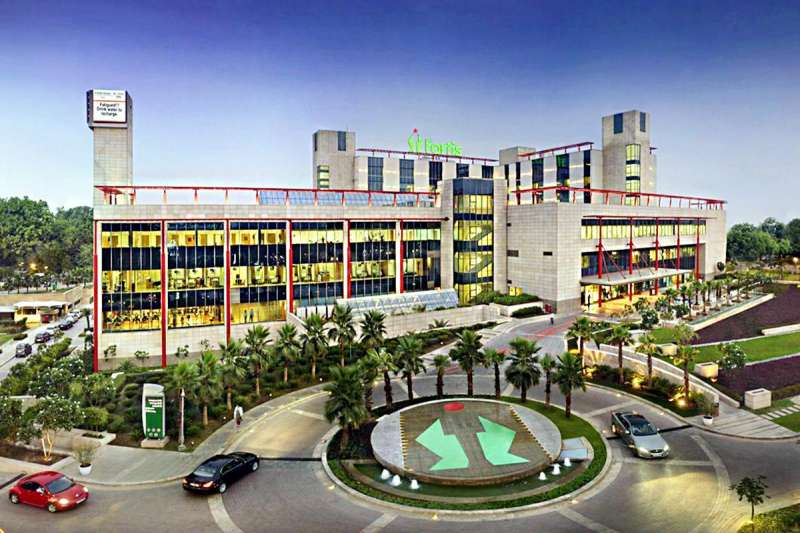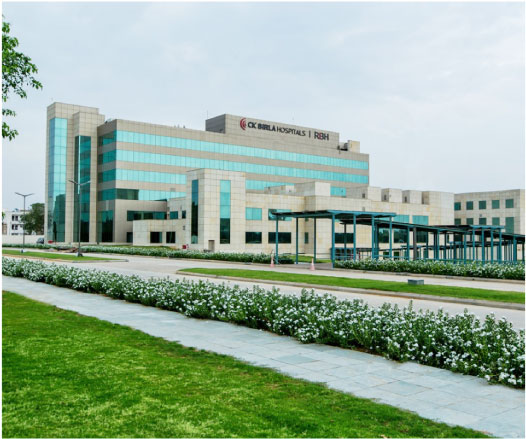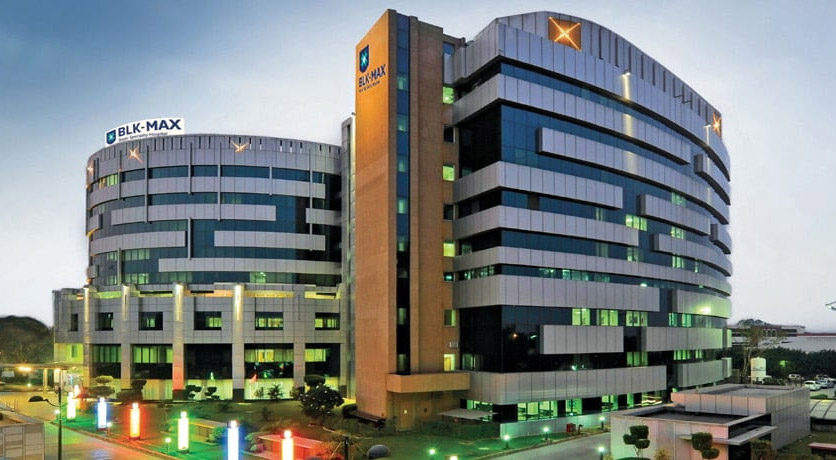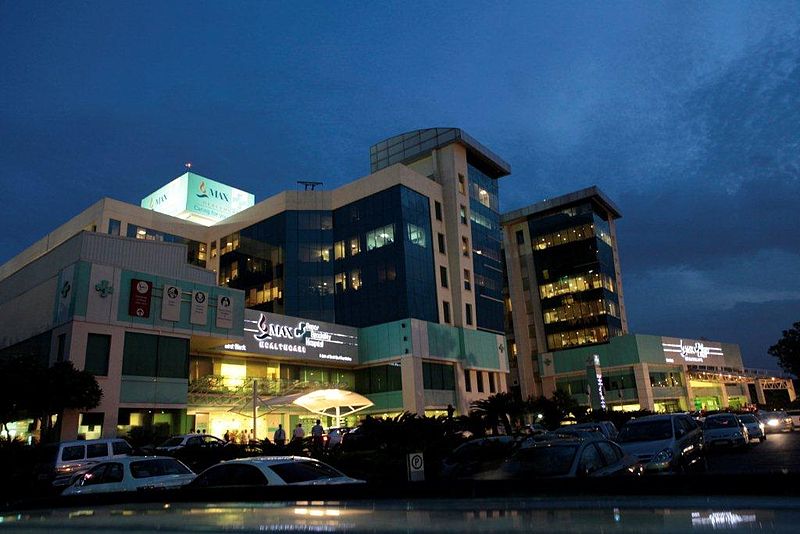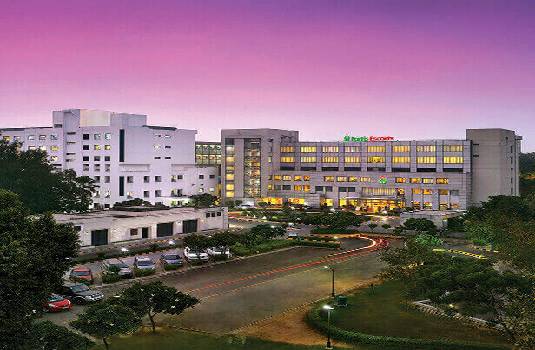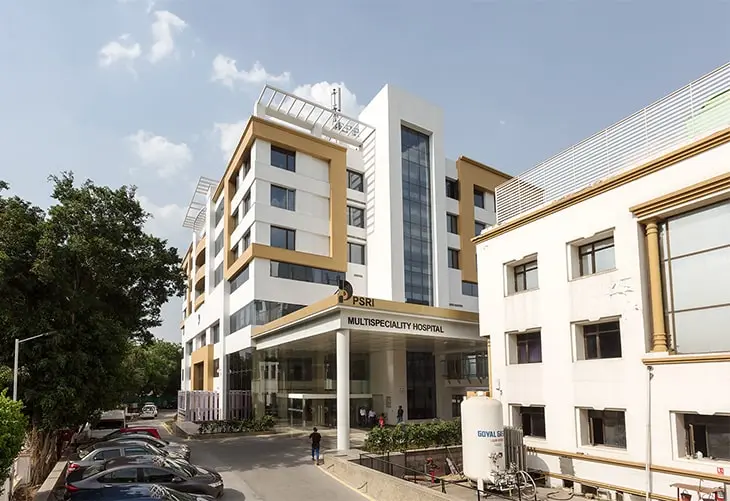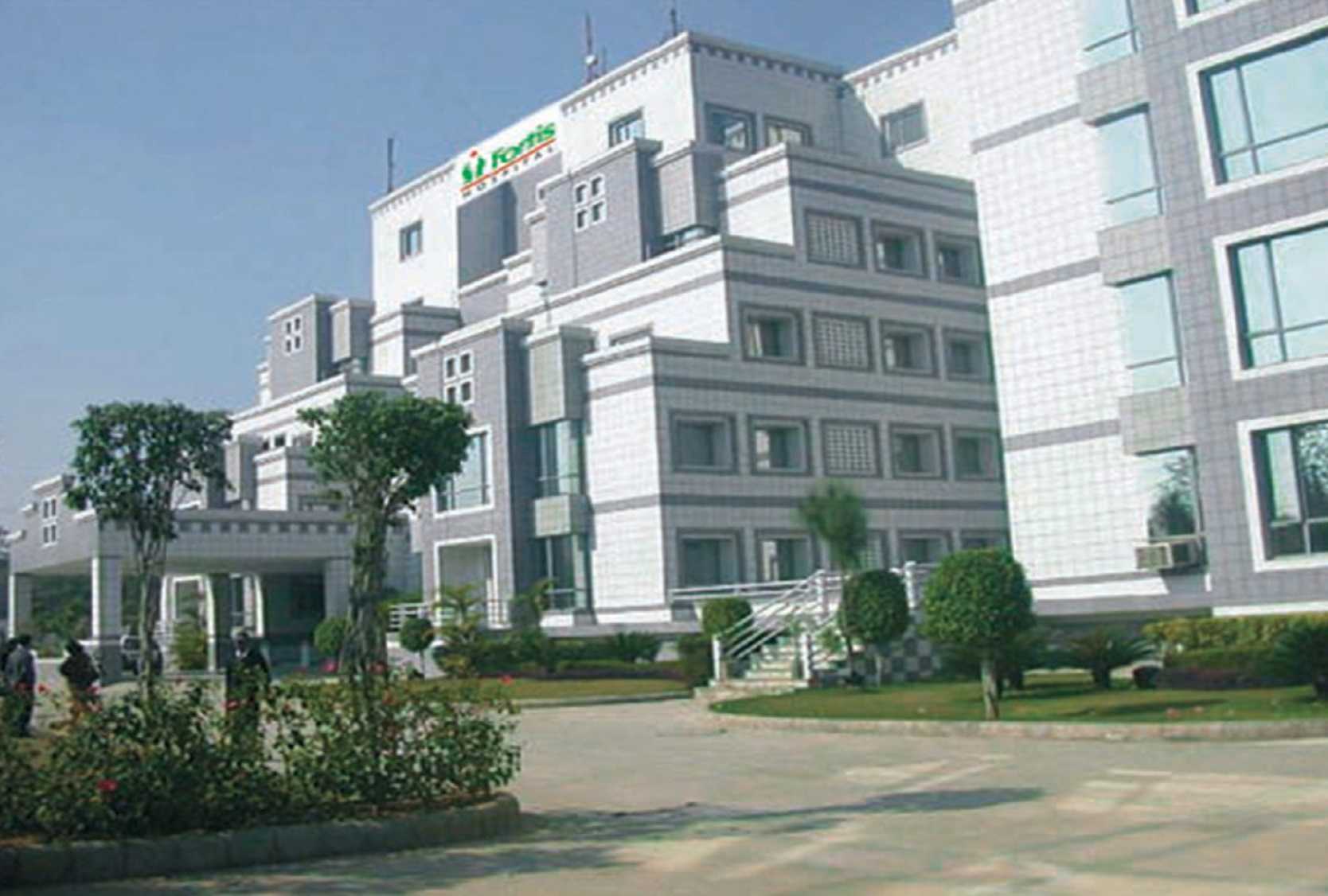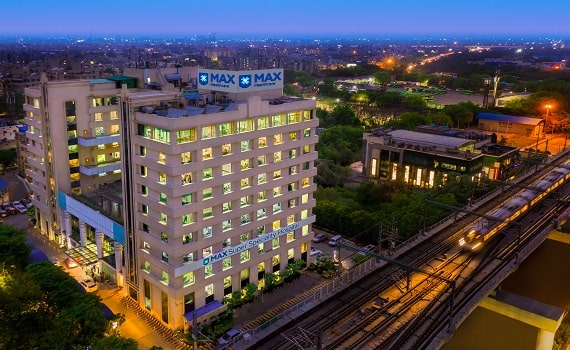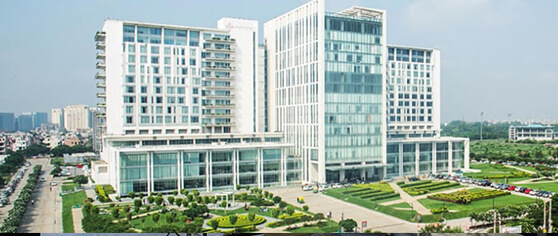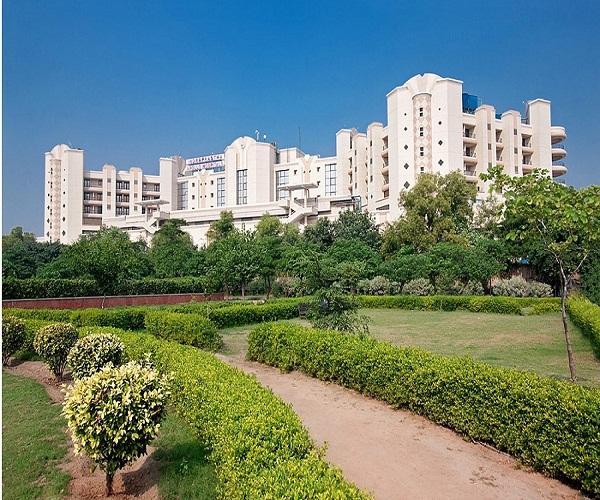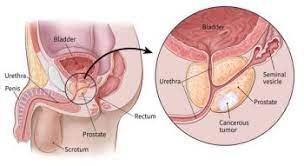Laser Prostate Surgery cost in India
The cost of Laser Prostate Surgery in India ranges from USD 2900 to USD 5000
Laser Prostate Surgery:
The condition known as benign prostatic hyperplasia (BPH), which is characterized by an enlarged prostate, can be treated with prostate laser surgery to relieve mild to severe urine problems. Your doctor will put a scope through the tip of your penis into the urethra, the tube that conducts pee from your bladder, during prostate laser surgery.
Laser Prostate Surgery:
BPH (benign prostatic hyperplasia) is a disorder in which an enlarged prostate causes moderate to severe urine problems. Prostate laser surgery is used to treat these symptoms (BPH). During prostate laser surgery, your doctor inserts a scope into the tube that transports pee from your bladder via the tip of your penis (urethra).
You should expect some little discomfort at the procedure site. The rectum, perineum, or lower abdomen can all be affected by prostate discomfort, which can be managed in a variety of ways.
For most men, prostate laser surgery increases urine flow. The effects are frequently long-lasting. The laser surgery may not remove all of the prostate tissue that is obstructing urine flow, or the tissue may grow back, necessitating another treatment.
Disease Overview:
Benign prostatic hyperplasia (BPH)
As men become older, benign prostatic hyperplasia (BPH), often known as prostate gland enlargement, becomes more frequent. An enlarged prostate gland can produce unpleasant urinary symptoms including stopping urine from leaving the bladder. It can also create difficulties with the bladder, urinary system, or kidneys.
Prostate gland enlargement can be treated with a variety of options, including medicines, minimally invasive therapy, and surgery. You and your doctor will evaluate your symptoms, the size of your prostate, any other health concerns you may have, and your preferences when deciding on the best alternative.
Disease Signs and Symptoms
The intensity of symptoms in patients with enlarged prostate glands vary, but they tend to get worse over time. The following are some of the most common indications and symptoms of BPH:
- Urge to urinate often or urgently
- Urination is more frequent at night (nocturia)
- Urination is difficult to begin.
- At the conclusion of urination, a weak urine stream or one that pauses and resumes dribbling
- Inability to empty the bladder entirely
The following are some of the less prevalent indications and symptoms:
- Infection of the urinary tract
- Urinary incontinence
- Urine with blood
The severity of your symptoms isn't always determined by the size of your prostate. Some men with slightly enlarged prostates might experience considerable symptoms, while others with significantly enlarged prostates may only experience minor urine problems. In some men, symptoms eventually stabilize and might even improve over time.
Disease Causes:
Underneath your bladder lies the prostate gland. The urethra (the tube that takes urine from the bladder out of your penis) passes through the prostate's core. When the prostate grows larger, it begins to obstruct the flow of urine.
Most men's prostates continue to develop throughout their lives. Many men's prostates swell to the point where they produce urinary symptoms or considerably obstruct urine flow as a result of their continuing development.
Disease Diagnosis:
Your doctor will begin by inquiring about your symptoms in detail and performing a physical examination. The following items are likely to be included in this first examination:
- Rectal examination with a digital camera. To examine for prostate enlargement, the doctor puts a finger into the rectum.
- A urine test is performed. An infection or other illnesses that might produce similar symptoms can be ruled out by analysing a sample of your urine.
- A blood test is required. The results might point to an issue with the kidneys.
- Blood test for prostate-specific antigen (PSA). PSA is a hormone generated by the prostate gland. When you have an enlarged prostate, your PSA levels rise. PSA levels can also be increased as a result of recent operations, infection, surgery, or prostate cancer.
Following that, your doctor may suggest more testing to confirm or rule out an enlarged prostate.
These tests include the following:
- Urinary flow test is a procedure that measures the flow of urine in the body. You pee into a container connected to a machine that measures the strength and volume of urine you produce. The findings of your tests might help you assess whether your health is improving or worse over time.
- Test for residual volume after voiding. This test determines if you can totally empty your bladder. The test can be performed using ultrasonography or by putting a catheter into your bladder after you have urinated to determine how much pee is remaining in your bladder.
- A voiding journal that lasts 24 hours. If more than one-third of your daily urinary output occurs at night, keeping track of the frequency and volume of pee may be extremely beneficial.
If your problem is more serious, your doctor may suggest that you:
- Ultrasound in the transrectal area. To measure and analyse your prostate, an ultrasound probe is put into your rectum.
- Biopsy of the prostate. Transrectal ultrasonography is used to guide needles used to obtain prostate tissue samples (biopsies). Prostate cancer can be diagnosed or ruled out by examining the tissue.
- Studies on urodynamics and pressure flow. A catheter is inserted into your bladder through your urethra. Your bladder is progressively injected with water or, less usually, air. The pressure in your bladder can then be measured by your doctor to see how well your bladder muscles are performing. These tests are often reserved for men who have suspected neurological disorders or who have undergone a previous prostate operation and are still experiencing symptoms.
- Cystoscopy. Your doctor will place a lighted, flexible device (cystoscope) into your urethra to view inside your urethra and bladder. Before the exam, you will be given a local anaesthetic.
Disease Treatment
An enlarged prostate can be treated with a range of options, including medication, minimally invasive therapy, and surgery. The optimum treatment option for you is determined by a number of criteria, including:
- Your prostate's dimensions
- Age
- Your general well-being
- The level of discomfort or annoyance you're feeling
- If your symptoms are manageable, you may choose to postpone therapy and merely monitor them. Symptoms in some men may improve without therapy.
Medication
For mild to severe symptoms of prostate enlargement, medication is the most frequent therapy. Among the possibilities are:
Alpha-blocking agents. These drugs relax the bladder neck muscles and the prostate muscle fibres, making urination simpler.
Inhibitors of 5-alpha reductase. These drugs reduce prostate size by inhibiting hormonal changes that cause it to expand.
Drug treatment in combination. If one medicine isn't working, your doctor may prescribe a combination of an alpha blocker and a 5-alpha reductase inhibitor.
Tadalafil is a drug that is used to treat erect (Cialis). According to research, this drug, which is commonly used to treat erectile dysfunction, can also be used to treat prostate enlargement.
Surgical or minimally invasive therapies
If you have any of the following symptoms, minimally invasive or surgical treatment may be recommended:
- Your signs and symptoms range from mild to severe.
- Your symptoms have not been alleviated by medication.
- You have a blockage in your urinary tract, bladder stones, blood in your urine, or kidney issues.
- You prefer a long-term solution.
If you have the following conditions, minimally invasive or surgical therapy may not be a choice for you:
- An infection of the urinary system that has gone untreated
- Urethral stricture is a condition that affects the urethra.
- Prostate radiation therapy or urinary tract surgery is a risk factor.
- Parkinson's disease or multiple sclerosis are examples of neurological disorders.
Any prostate operation might result in negative side effects. Complications may arise depending on the technique you choose:
- During ejaculation, sperm flows backward into the bladder instead of out via the penis (retrograde ejaculation)
- Urinary incontinence for a short period of time
- Infection of the urinary tract
- Bleeding
- Erectile dysfunction (ED) is a condition that affects men
- Bladder control loss is a rare occurrence (incontinence)
Minimally invasive or surgical treatments come in a variety of forms.
Prostate excision through the urethra (TURP)
The surgeon inserts a lighted scope into your urethra and removes everything except the outside section of the prostate. TURP improves symptoms rapidly, and most men notice a boost in urine output shortly after the treatment.
You may require a catheter to empty your bladder briefly after TURP.
Prostate incision via the urethra (TUIP)
The surgeon inserts a lighted scope into your urethra and makes one or two tiny incisions in the prostate gland, making it easier for urine to pass through. If you have a tiny or moderately enlarged prostate gland, this procedure may be a possibility, especially if you have health issues that make other treatments too hazardous.
Thermotherapy using microwaves in the urethra (TUMT)
A particular electrode is inserted into your prostate region through your urethra by your doctor. The electrode's microwave radiation kills the inner section of the enlarged prostate gland, reducing it and making it easier to pass urine.
TUMT may only partly ease your symptoms, and you may not notice any changes for some time. Because re-treatment may be required, this procedure is often reserved for tiny prostates in exceptional cases.
Transurethral needle ablation (TUNA) is a procedure in which a scope is inserted into your urethra and needles are inserted into your prostate gland. The needles are heated and destroyed by radio waves, which heat and kill excess prostate tissue that is obstructing urine flow. In some circumstances, TUNA may be an alternative, although it is no longer commonly utilised.
Laser therapy is a type of treatment that uses light
Overgrown prostate tissue is destroyed or removed with a high-energy laser. Non-laser surgery has a higher risk of adverse effects and may not treat symptoms as quickly as laser therapy.
Special tags are used to compress the sides of the prostate to increase the flow of urine. The procedure might be recommended if you have lower urinary tract symptoms. PUL also might be offered to some men concerned about treatment impact on erectile dysfunction and ejaculatory problems, since the effect on ejaculation and sexual function is much lower with PUL that it is with TURP.
Embolization
In this experimental procedure, the blood supply to or from the prostate is selectively blocked, causing the prostate to decrease in size. Long-term data on the effectiveness of this procedure aren't available.
Open or robot-assisted prostatectomy
The surgeon makes an incision in your lower abdomen to reach the prostate and remove tissue. Open prostatectomy is generally done if you have a very large prostate, bladder damage or other complicating factors. The surgery usually requires a short hospital stay and is associated with a higher risk of needing a blood transfusion.
Men who use blood-thinning drugs and shouldn't undergo other prostate operations may benefit from laser treatment.
The following are some laser treatment options:
Procedures that are considered to be abortive. To enhance urine flow, these techniques vaporise obstructive prostate tissue. Photoselective vaporisation of the prostate (PVP) and holmium laser ablation of the prostate are two examples (HoLAP). Because ablative techniques might induce bothersome urinary symptoms following surgery, a second resection procedure may be required in some cases.
Procedures involving enucleation. Enucleative techniques, such as holmium laser enucleation of the prostate (HoLEP), remove all prostate tissue that is obstructing urine flow and prevent tissue regrowth. Prostate cancer and other disorders can be checked on the tissue that has been removed. Open prostatectomy is identical to these techniques.
Prostatic urethral lift is a term used to describe the lifting of the ureth (PUL)
To stimulate the flow of urine, special tags are utilised to pressure the sidewalls of the prostate. If you experience problems in your lower urinary tract, the operation may be indicated. Because the effect on ejaculation and sexual function is substantially lower with PUL than with TURP, it may be provided to those men who are concerned about the treatment's influence on erectile dysfunction and ejaculatory difficulties.
Embolization
The blood flow to or from the prostate is selectively stopped in this experimental method, causing the prostate to shrink in size. There are no long-term statistics on the efficacy of this surgery.
Prostatectomy, open or robot-assisted
To access the prostate and remove tissue, the surgeon creates an incision in your lower abdomen. If you have a big prostate, bladder injury, or other complicated problems, you may need an open prostatectomy. The operation normally necessitates a brief stay in the hospital and is linked to an increased risk of requiring a blood transfusion.
Country wise cost comparison for Laser Prostate Surgery:
| Country | Cost |
|---|---|
| India | $2970 |
Treatment and Cost
7
Total Days
In Country
- 2 Day in Hospital
- 2 No. Travelers
- 5 Days Outside Hospital
Treatment cost starts from
$3300
Popular Hospital & Clinic
Featured Hospital
102 Hospitals
Types of Laser Prostate Surgery in Fortis Memorial Research Institute and its associated cost
| Treatment Option | Approximate Cost Range (USD) |
|---|---|
| No Treatment option added | |
- Address: Sector - 44, Opp. HUDA City Center,Gurgaon, Haryana - 122002, India
- Facilities related to Fortis Memorial Research Institute: Private Rooms, Translator, Nursery / Nanny Services, Airport Pick up, Personal Assistance / Concierge, Free Wifi, Local Tourism Options, International Cuisine, Phone in Room, Private Driver / Limousine Services, Post operative followup, Mobility Accessible Rooms, Online Doctor Consultation, Air Ambulance, Religious Facilities, Rehabilitation, Cafe, TV in room, Car Hire, Health Insurance Coordination,
50
DOCTORS IN 35 SPECIALITIES
20+
FACILITIES & AMENITIES
Types of Laser Prostate Surgery in CK Birla Hospital, Gurgaon and its associated cost
| Treatment Option | Approximate Cost Range (USD) |
|---|---|
| No Treatment option added | |
- Address: Block J, CK Birla Hospital, Nirvana Central Rd, Mayfield Garden, Sector 51, Gurugram, Haryana 122018
- Facilities related to CK Birla Hospital, Gurgaon: The hospital has following facilities: Patient Rooms: Presidential suite, suites, junior suites, deluxe single and shared rooms 4 state-of-the-art modular OTs Critical Care Facilities Labour delivery rooms (LDR) with piped Entonox for pain management North India’s only water-birthing facility Advanced IVF laboratory Chemo Daycare center Physiotherapy Centre 24x7 Radiology - including 4D ultrasound, X-ray, digital mammography, BMD, ECHO 24x7 Pathology including advanced genetic testing 24x7 Emergency 24x7 Pharmacy Studio for fitness, antenatal and post-natal classes & to host medical and educational workshops Café serving healthy & nutritious food and drinks
13
DOCTORS IN 21 SPECIALITIES
20+
FACILITIES & AMENITIES
Types of Laser Prostate Surgery in BLK-Max Super Speciality Hospital and its associated cost
| Treatment Option | Approximate Cost Range (USD) |
|---|---|
| No Treatment option added | |
- Address: Pusa Road, New Delhi-110005
- Facilities related to BLK-Max Super Speciality Hospital: Private Rooms, Translator, Nursery / Nanny Services, Personal Assistance / Concierge, Free Wifi, International Cuisine, Phone in Room, Private Driver / Limousine Services, Post operative follow-up, Mobility Accessible Rooms, Rehabilitation, Cafe, TV in room, Car Hire, Health Insurance Coordination
17
DOCTORS IN 33 SPECIALITIES
20+
FACILITIES & AMENITIES
Types of Laser Prostate Surgery in Max Super Speciality Hospital and its associated cost
| Treatment Option | Approximate Cost Range (USD) |
|---|---|
| No Treatment option added | |
- Address: Max Super Speciality Hospital No. 1, 2, Press Enclave Road, Mandir Marg, Saket Institutional Area, Saket, New Delhi, Delhi, 110017, India
- Facilities related to Max Super Speciality Hospital:
53
DOCTORS IN 34 SPECIALITIES
20+
FACILITIES & AMENITIES
Types of Laser Prostate Surgery in Fortis Escorts Heart Institute and its associated cost
| Treatment Option | Approximate Cost Range (USD) |
|---|---|
| No Treatment option added | |
- Address: Okhla Road,New Delhi - 110 025 (INDIA)
- Facilities related to Fortis Escorts Heart Institute: Private Rooms, Translator, Nursery / Nanny Services, Personal Assistance / Concierge, Free Wifi, International Cuisine, Phone in Room, Private Driver / Limousine Services, Post operative follow-up, Mobility Accessible Rooms, Rehabilitation, Cafe, TV in room, Car Hire, Health Insurance Coordination
19
DOCTORS IN 33 SPECIALITIES
20+
FACILITIES & AMENITIES
Types of Laser Prostate Surgery in PSRI Hospital and its associated cost
| Treatment Option | Approximate Cost Range (USD) |
|---|---|
| No Treatment option added | |
- Address: Press Enclave Marg, J Pocket, Phase II, Sheikh Sarai, New Delhi, Delhi 110017
- Facilities related to PSRI Hospital: Private Rooms, Translator, Nursery / Nanny Services, Personal Assistance / Concierge, Free Wifi, International Cuisine, Phone in Room, Private Driver / Limousine Services, Post operative follow-up, Mobility Accessible Rooms, Rehabilitation, Cafe, TV in room, Car Hire, Health Insurance Coordination
8
DOCTORS IN 33 SPECIALITIES
20+
FACILITIES & AMENITIES
Types of Laser Prostate Surgery in Fortis Flt. Lt. Rajan Dhall Hospital, Vasant Kunj, Delhi and its associated cost
| Treatment Option | Approximate Cost Range (USD) |
|---|---|
| No Treatment option added | |
- Address: Fortis Flt. Lt. Rajan Dhall Hospital, Aruna Asaf Ali Marg, Pocket 1, Sector B, Vasant Kunj, New Delhi, Delhi 110070
- Facilities related to Fortis Flt. Lt. Rajan Dhall Hospital, Vasant Kunj, Delhi: Private Rooms, Translator, Nursery / Nanny Services, Personal Assistance / Concierge, Free Wifi, International Cuisine, Phone in Room, Private Driver / Limousine Services, Post operative follow-up, Mobility Accessible Rooms, Rehabilitation, Cafe, TV in room, Car Hire, Health Insurance Coordination
46
DOCTORS IN 34 SPECIALITIES
20+
FACILITIES & AMENITIES
Types of Laser Prostate Surgery in MAX Super Speciality hospital, Patpadganj Delhi and its associated cost
| Treatment Option | Approximate Cost Range (USD) |
|---|---|
| No Treatment option added | |
- Address: 108A, Indraprasth Extension, Patpadganj, New Delhi- 110092, India
- Facilities related to MAX Super Speciality hospital, Patpadganj Delhi: Private Rooms, Translator, Nursery / Nanny Services, Personal Assistance / Concierge, Free Wifi, International Cuisine, Phone in Room, Private Driver / Limousine Services, Post operative follow-up, Mobility Accessible Rooms, Rehabilitation, Cafe, TV in room, Car Hire, Health Insurance Coordination
52
DOCTORS IN 33 SPECIALITIES
20+
FACILITIES & AMENITIES
Types of Laser Prostate Surgery in Medanta-The Medicity, Gurgaon and its associated cost
| Treatment Option | Approximate Cost Range (USD) |
|---|---|
| No Treatment option added | |
- Address: CH Baktawar Singh Road, Sector 38, Gurugram, Haryana 122001
- Facilities related to Medanta-The Medicity, Gurgaon: TV in room Private rooms, Free Wifi, Phone in Room, Mobility accessible rooms, Family accommodation, Laundry, Welcome Safe in the room, Nursery / Nanny services. Dry cleaning, Personal assistance / Concierge Religious facilities, Fitness Spa and wellness Café, Business Centre, Shop, Dedicated smoking areas, Beauty Salon, Special offer for group stays, Parking available, Health insurance coordination, Medical travel insurance, Foreign currency exchange, ATM, Credit Card, Debit Card, Net banking, Diet on Request, Restaurant, International Cuisine, Treatment Related Medical records transfer, Online doctor consultation, Rehabilitation, Pharmacy, Document legalization, Post operative follow-up, Language Interpreter, Translation services, Transportation, Airport pickup, Local tourism options, Local transportation booking, Visa / Travel office, Car Hire, Private driver / Limousine services, Air ambulance
52
DOCTORS IN 33 SPECIALITIES
20+
FACILITIES & AMENITIES
Types of Laser Prostate Surgery in Indraprastha Apollo Hospitals, New Delhi and its associated cost
| Treatment Option | Approximate Cost Range (USD) |
|---|---|
| No Treatment option added | |
- Address: Mathura Rd, Jasola Vihar, New Delhi, Delhi 110076
- Facilities related to Indraprastha Apollo Hospitals, New Delhi: Private Rooms, Translator, Nursery / Nanny Services, Personal Assistance / Concierge, Free Wifi, International Cuisine, Phone in Room, Private Driver / Limousine Services, Post operative follow-up, Mobility Accessible Rooms, Rehabilitation, Cafe, TV in room, Car Hire, Health Insurance Coordination
37
DOCTORS IN 33 SPECIALITIES
20+
FACILITIES & AMENITIES
Related Packages
More Related Information
Some of the top rated doctors are:
Some of the top rated hospitals are:
- India
- Fortis Memorial Research Institute
- BLK-Max Super Speciality Hospital
- Medanta-The Medicity, Gurgaon
- Indraprastha Apollo Hospitals, New Delhi
- Artemis Hospitals
- Manipal Hospitals
- Nanavati Max Super Speciality Hospital, Mumbai
- Kokilaben Dhirubhai Ambani Hospital, Mumbai
- KIMS Hospital Kondapur, Hyderabad
- MIOT International, Chennai
- MGM Healthcare, Chennai
- Italy
Frequently Asked Questions
In India, there are numerous top facilities for treating prostate cancer. The following are some of the most well-known hospitals in India For Laser Prostate Surgery:
1-Apollo Hospital Delhi
2-Max Smart Super Speciality Hospital
3-Jaypee Hospital
4-Max Super Speciality Hospital, Patparganj
5-Sharda Hospital
6-Millennium Cancer Center
7-Seven Hills Hospital
8-Wockhardt Hospital, Umrao
9-Apollo Hospitals Bannerghatta
10-Sri Ramachandra Medical Centre
In India, the cost of prostate cancer treatment begins at approximately 2,500 USD. In India, there are numerous hospitals with JCI and NABH certifications that provide prostate cancer treatment.
In India, many hospitals have varying policies regarding the cost of laser prostate surgery. Several of the top hospitals for laser prostate surgery provide a full range of services that include all costs associated with the patient's care and investigations. The price of the all-inclusive prostate cancer treatment package covers the cost of diagnostic tests, surgery, medications, and supplies. New discoveries, post-operative problems, and a delayed recovery could affect the overall cost of laser prostate surgery in India.
India is among the best places to have laser prostate surgery. It has several accredited hospitals, reasonably priced medical care, and some of the top medical fraternities. The following are some additional locations that are well-liked for laser prostate surgery:
United Kingdom, Malaysia, Singapore, Thailand, Turkey, Greece, Saudi Arabia, South Africa, Switzerland, and the United Arab Emirates.
The patient is expected to stay in the guest house for an additional seven days following laser prostate surgery in India. It is advised that patients stay for this length of time in order to finish all required follow-ups and control tests and make sure the surgery went well.

